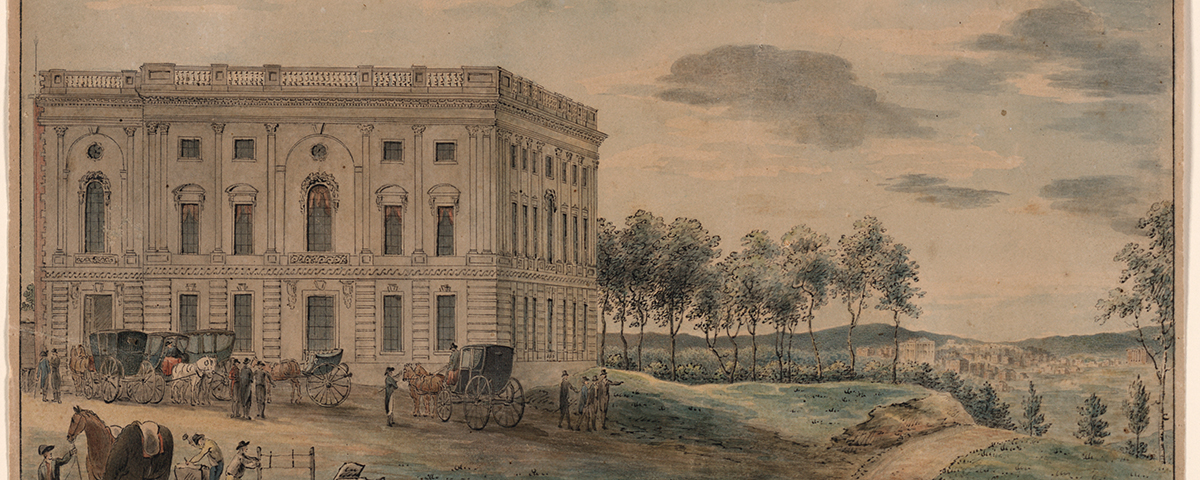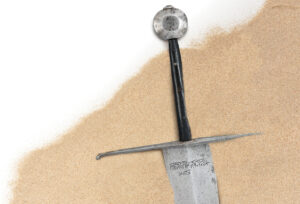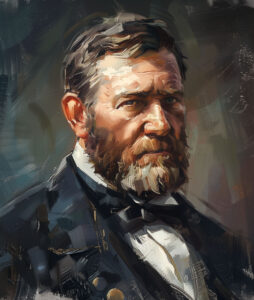Chief justice’s legacy of landmark decisions is still with us today
AMERICAN HISTORY “Déjà Vu” columnist Richard Brookhiser, left, is a journalist, historian, documentary filmmaker, and author. His latest book, John Marshall: The Man Who Made the Supreme Court (Basic, 2018) is a biography of a titan of American jurisprudence.
What about Marshall surprised you most? His humor. Judging is an inherently serious matter, on top of which Marshall found himself in some tight spots thanks to the partisanship that marked his years on the bench (1801-35). Yet he was always up for a good story and a good drink. “I love his laugh,” wrote future associate justice Joseph Story after they first met. I’m glad my
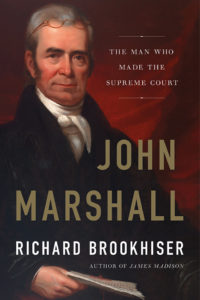
publisher put a smiling picture of him on the cover.
You term him “the last Federalist.” Why? Marshall was a deep-dyed Federalist. He called George Washington “the greatest Man on earth,” he owed his chief justiceship to John Adams, and he described Alexander Hamilton as a “genius.” Although the party collapsed after the War of 1812, Marshall as chief justice had lifetime tenure. So many of his landmark decisions—protecting contracts and corporations, enforcing federal supremacy over state courts, fostering commerce—reflected Federalist policies. And he kept it up into the Age of Jackson.
What was his most formative experience? He had two, one from each of his fathers. His actual father, Thomas Marshall—frontiersman, surveyor, and real estate speculator—raised him to be a lawyer, homeschooling him with Blackstone’s Commentaries on the Laws of England. His symbolic father, George Washington, commanded him during the Revolution at Brandywine, Germantown, and Valley Forge. His profession was the law; his goal in life was to be as dutiful and as patriotic as Washington.
How did the Revolution resonate in his life? Fighting in common cause beside comrades from many states made him a nationalist. Suffering alongside them showed him the consequences of ineffectual government: meager supplies, pay ever in arrears. The war showed him the need of a new Constitution and inspired him to be its lifelong defender.
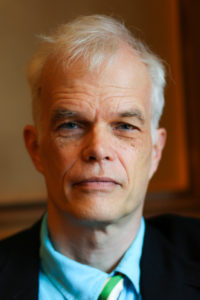
Explain the Quoits Club. Quoits was a game, like horseshoes, played with iron rings. The Club was a group of Richmond gentlemen who met weekly May to October to play, eat, drink, and give comic speeches. Membership was capped at 30, but open to all political persuasions. The club fostered trans-partisan friendships: good training for a justice whose high court colleagues increasingly came from the other political party, the Republicans. Thanks to his Quoits Club experience, and his own splendid temper, Marshall befriended them—the first step to converting them to his views.
Marshall owned slaves. What does the record say about him? Paul Finkelman has shown that Marshall owned 130 to 150 slaves, rather than the dozen or so older biographies assigned him. Marshall extended himself for Indians, going to the mat with Andrew Jackson over his policy of ejecting them beyond the Mississippi. But he lived with slavery and took no serious steps to curtail it. He fell short of his Federalist idols—Washington, who freed all his slaves in his will, and Hamilton, who helped found the New-York Manumission Society.
Explain the “Marshall Court.” We are talking about two things: decisions, and attitude. The Marshall Court’s decisions created a national economic market (Gibbons v. Ogden) in which individuals and corporations (Dartmouth v. Woodward) could contract to do business (Fletcher v. Peck), free from state-level interference. The Marshall Court behaved as a peer of the other branches of government, rebuking states (McCulloch v. Maryland, Cohens v. Virginia) and Congress (Marbury v. Madison) and scolding presidents (Marbury again). Both facets of the Marshall Court are with us today.
Characterize Marshall as High Court member and manager. First, he was fun to be with. Only two people ever hated him: his cousin Thomas Jefferson, and former William and Mary classmate and Virginia judge Spencer Roane. Second, he was politic. He deferred to fellow judges in areas of law in which he was not expert—and got deference in return. Third, he was shrewd. He picked his battles (“I am not fond,” he told Story, “of butting my head against a wall in sport”). Fourth, he was smart. When he bore down, he was overpowering. His mind, said Attorney General William Wirt, was like the Atlantic Ocean, while everybody else’s were mere ponds. Fifth, he endured: 34 years as chief justice, still a record.
For much of Marshall’s SCOTUS tenure, justices roomed together. What impact did this have? We know from a sometimes-restive justice, William Johnson, that there was explicit pressure to conform. Early in his Court days Johnson was warned by his brethren—he never said who—that his dissents would lower their collective prestige. But eating and drinking together is a potent form of bonding. Marshall’s SCOTUS was like the Quoits Club, DC chapter.
What are the hallmarks of a “Marshall decision”? It often begins with an ironic tic: Marshall will say the question before the Court was one of great “delicacy.” When he says that, expect a roundhouse. And it comes: well-organized, measured in tone, implacable. He had a knack, which I think he picked up from Alexander Pope, for making his judgments seem obvious. You would as soon argue with Mount Sinai.
How does Marshall’s presence still echo in the court’s workings? Besides the economic and structural legacies I mentioned earlier, he can appear without warning. When pundits and Tweeters throw around the word treason, I think how carefully Marshall weighed it in the treason trial of Aaron Burr. Stick around, and Marshall is liable to pop up.
What about his private life? I’m more interested in John’s public career, but there is something both sweet and painful about the Marshall marriage. His wife Mary, known as Polly, was a bold young girl who wanted him and got him, but she soon became a depressed recluse. His zest for politics and socializing probably encouraged her depression. Yet he loved her, admired her taste—I think she introduced him to Jane Austen—and wept often after she died. The three dates he picked for his epitaph were his birth, his wedding, and his death. He wrote that epitaph, by the way, on the Fourth of July. Patriot to the end. H

